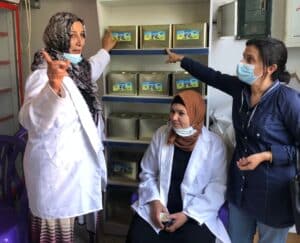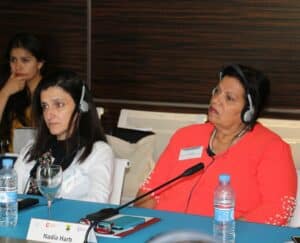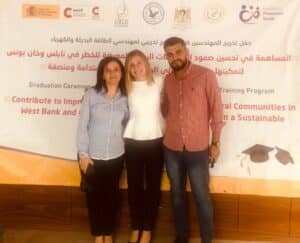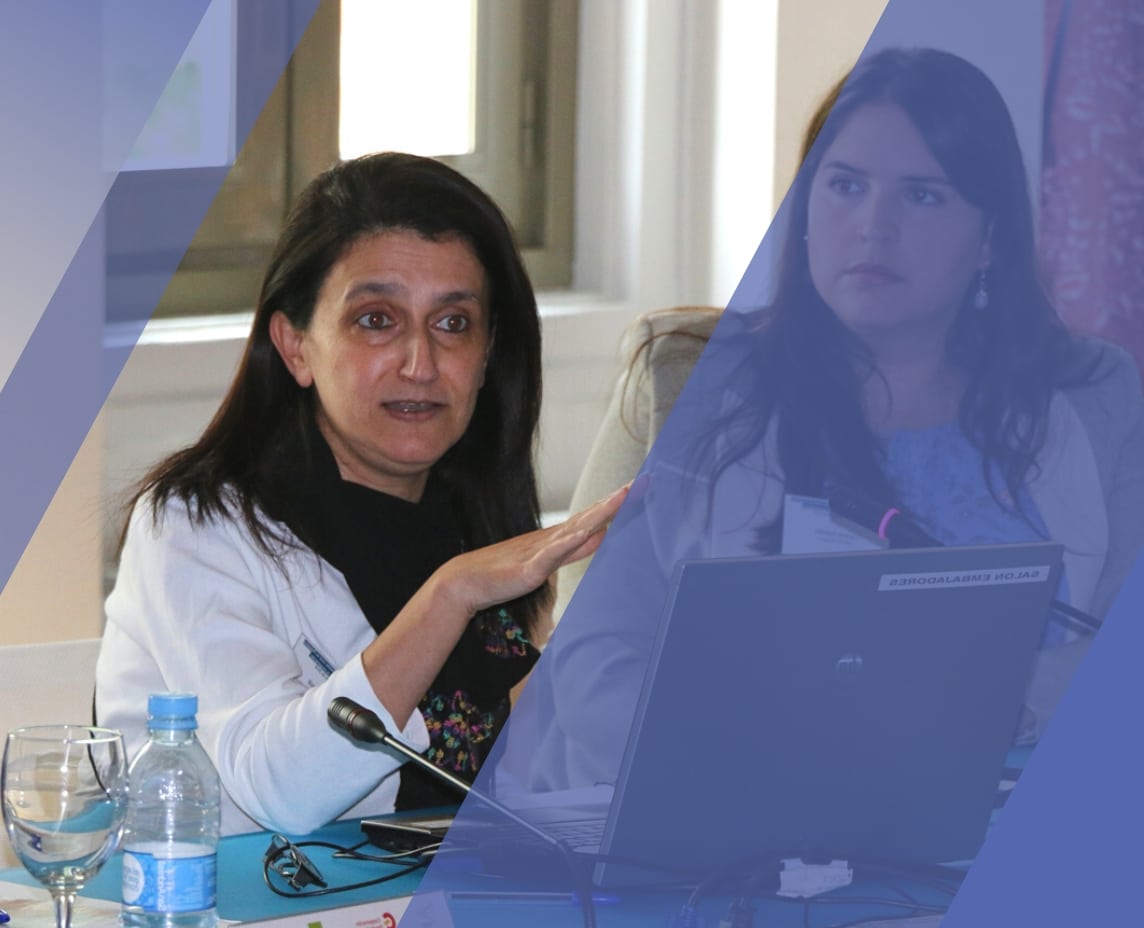We reproduce the interview made to Basema Shuquir, Project Manager at Palestinian Agricultural Relief Committee (PARC), our local partner in Palestine, by Mayte Illán, Head of Mission of Social Promotion Foundation in Palestine.
At the Fundación, in each country, we support local organisations as main drivers of change. We do not export or impose a development model, but rather we work hand in hand with civil society and local actors which are the ones that know best the needs of their people.
Without the professionalism and impressive day-to-day work of professionals as Basema, it would not be possible to implement initiatives supporting the most vulnerable ones in countries like Palestine, where they face many challenges.
MAYTE ILLÁN (M): Can you please introduce yourself and your work in a few sentences?
BASEMA SHUQUIR (B): I am Basema Shukair, married with 3 children. I have Master degree in “Sustainable Rural Development” from Al Quds university in Jerusalem. I have worked for PARC since 1992, where I started as a receptionist and became a Programme Coordinator managing AECID-funded interventions with FPS.
M: Why did you initiate your career in development?
B: I believe that God chose the best for me, and if I had the chance to go back in time, definitely, I will choose working in development. It has become part of my identity, I do not see myself in any other place.
M: Why do you think development interventions are important in rural communities?
B: There is no one more deserving than the rural communities. In development interventions, as a simple as their contribution may be, will always improve their living conditions, especially in a society as the Palestian one, with all the difficult conditions it is exposed to.

M: Which are your lessons learnt from the COVID and which are the strategies you put in place as Programme Coordinator to ensure the best support to the communities?
B: The most important lessons we learned during the pandemic are challenge and patience. As PARC programme Coordinator, we provided continued support to rural communities, including spraying and sterilization campaigns, distributing food baskets, distributing hygiene baskets, and health awareness leaflets.
M: Share with me one word that comes to your mind when I mention: “Palestinian women” / “youth entrepreneurship” / “climate change”
B: Palestinian women: PATIENCE/ youth entrepreneurship: HOPE (Providing opportunities)/ climate change: ADAPTATION (Changing lifestyles).
M: Which was the moment you have enjoyed the most throughout your career? and working under the current Agreement?
B: I cannot say that there is a unique specific moment, I remember many moments and many situations. Most of them are when the rightsholders we work with, are grateful with our work. As for the current Agreement funded by AECID, I believe that all the activities are equally important and are bringing a positive impact for the communities.

It was my first opportunity to speak and make a presentation about my work in front of the public. I felt a great fear, but the encouragement of the partners in FPS was key for me. In this visit I was accompanied by my colleague Nadia Harb (RWDS manager), who left us early as a result of cancer (may her soul rest in peace). I walked with her in the streets of Madrid in the evening, we talked about our work in Palestine and our common dreams of seeing Palestinian women and their lives improved, we planned together to work more in the field of supporting women, we used to say to each other “we are strong, we are beautiful, we are capable”, and I believe that she was.
The word that comes to my mind when “Palestinian women” is mentioned is PATIENCE / HOPE (give them opportunities) when “youth entrepreneurship” is mentioned / and ADAPTATION (change of lifestyles) when the words mentioned are “climate change” (Basema Shuquir).
M: That the one that touched you the most when working with the communities and made you felt your action was making a difference?
B:I believe that all the activities I work are connected, integrated and had a positive impact on the most vulnerable communities. When we work in new agricultural roads to facilitate farmers’ access to their lands, this bring is to work in land reclamation, tree planting, rainwater collection for irrigation, etc We always complete them with training farmers on new and modern methods improving their abilities and life conditions. There are many examples, in the end, all activities are intertwined.

Let me add that women in Palestine suffer from difficult conditions due to the general situation, forcing them to become stronger to face many difficulties and challenges in order to succeed.
M: And a moment in all these years of work you are most proud of?
B: Once again, I cannot say that there is a specific moment that I am proud of. When you ask me such a question, so many images passed before my eyes, and I feel very emotional about the moments and situations I experienced.
I am proud of myself for what I have done, I am proud of the institution that I worked for, I am proud of all those who were with me and had a contribution to improving people’s conditions.





